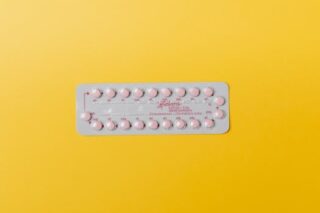
More Women's Health & Beauty Articles
Navigating the Side Effects of Quitting Birth Control After Long-Term Use

Many people who have been on birth control, specifically the pill form, for an extended period may experience various changes when they decide to stop. Understanding the side effects of stopping the pill after prolonged use is crucial for anyone considering this lifestyle change. While it is a common and usually safe transition, it may bring about several physical and emotional adjustments.
Understanding the Side Effects of Stopping the Pill After Prolonged Use
After years of regulating your menstrual cycle and hormones with birth control pills, your body can undergo several changes when you stop them. While some effects are minor, others might require more management and attention.
One of the primary changes you might notice is irregular menstrual cycles. Your cycles may take a few months to normalize. Some people may experience heavy bleeding or irregular periods initially. This is a natural response as your body readjusts to its natural hormonal rhythm.
Alongside these physical changes, emotional fluctuations can also occur. Fluctuating hormones can lead to mood swings similar to those you might have experienced during premenstrual syndrome (PMS) before starting the pill. It’s important to be aware of these potential shifts to manage them effectively.
Common Physical Side Effects
Returning of menstrual symptoms, such as cramping, bloating, or acne, are often reported as side effects of stopping birth control. While these are temporary for many, understanding how to manage them can help ease the transition.
Weight fluctuations can also happen. Some might notice water retention decreasing and a subsequent drop in weight, while others might experience an increase as the body finds its balance.
In some cases, stopping the pill may lead to the return of migraine headaches. If migraines were controlled while on the pill, it is advisable to consult a healthcare provider if they resume or escalate.
Emotional and Psychological Effects
The psychological impacts of stopping birth control can be significant. Hormonal adjustments may lead to emotional instability for some. Anxiety or mild depression are other side effects some individuals may encounter.
Monitoring your mental health during this period is essential. Keeping a journal of your mood patterns can be helpful for discussing any concerns with a healthcare provider. They can give personalized advice and support if needed.
Managing Side Effects and Transitioning Effectively
Managing the side effects of stopping birth control can require lifestyle adjustments. For example, maintaining a balanced diet rich in nutrients can support overall well-being and ease some physical symptoms. If dietary needs arise due to changes in mood or energy, you might find this resource on vitamins for brain health helpful.
Regular exercise can also play an essential role in stabilizing mood and alleviating physical symptoms such as bloating and cramps. However, it’s vital to listen to your body and not overexert yourself during this transition period.
When to Consult a Healthcare Provider
While the side effects of stopping birth control can be managed independently for many, there are times when professional advice is beneficial. If you experience prolonged heavy bleeding, severe pain, or emotional challenges, reaching out to a doctor is recommended.
Additionally, if fertility concerns or family planning questions arise, discussing these points with a healthcare provider can ensure your reproductive health remains in optimal condition.
Final Thoughts on the Side Effects of Stopping the Pill After Prolonged Use
Adjusting to the side effects of stopping the pill after prolonged use is a personal journey. While some side effects may be uncomfortable, they are typically temporary. Prioritize your health by observing any significant changes and consulting a healthcare provider as needed. For more information on health transitions, consider reviewing credible sources like this comprehensive health article.
- Stopping birth control pills may lead to physical and emotional changes.
- Common side effects include mood swings, irregular periods, and cramps.
- Healthy lifestyle choices can help manage symptoms.
- Consulting healthcare providers is recommended for severe symptoms.
- Emotional and psychological support can be beneficial.
What are common side effects of stopping birth control?
Common side effects include irregular periods, cramping, mood swings, acne, and changes in weight. These are generally temporary as your body readjusts to its natural hormonal patterns.
How long do side effects last after stopping birth control?
The duration varies, but most symptoms improve within a few months as your body returns to its natural cycle. If severe symptoms persist, consulting a doctor is advisable.
Can stopping birth control affect mental health?
Yes, hormonal fluctuations can impact mood, leading to anxiety or depression in some individuals. Monitoring mental health and seeking support if needed is important.
Is weight gain common after stopping birth control?
Some people experience weight changes due to hormonal shifts and water retention adjustments. Maintaining a balanced diet and regular exercise can help manage weight.
When should I see a doctor after stopping birth control?
A doctor should be consulted if you experience prolonged heavy bleeding, severe pain, or persistent emotional distress. They can offer personalized advice and treatment options.
Other Articles You May Find of Interest...
- Navigating the Side Effects of Quitting Birth Control After Long-Term Use
- How Ovulation Affects Your Emotions and Mood Swings
- Discovering the PCOS Belly Shape and Its Impact on Your Health
- Are Jelly-Like Blood Clots During Your Period Normal?
- Boost Your Estrogen Levels Naturally with These Essential Foods
- Can You Get a Pap Smear While on Your Period?
- Why Does My Clitoris Hurt and What You Should Know














